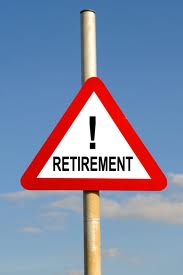 While many pension experts will give you ‘rules of thumb’ to save for retirement, the truth is that the kind of pension pot you will need is completely dependent upon your individual circumstances.
While many pension experts will give you ‘rules of thumb’ to save for retirement, the truth is that the kind of pension pot you will need is completely dependent upon your individual circumstances.
Planning
There are, however, some basic steps that you can take to start planning how much you should be saving.
The most important step in planning how much to save is to calculate how much you will need in income when you retire. You should keep careful track of your expenditures over a few months if you do not already do so, and review your outgoings.
Consider the expenses that will remain the same when you retire as well as the expenses that will have changed. For example, when you retire you may have paid off your mortgage, but may have extra expenses for travel or healthcare.
Then consider the income that you will have in retirement, as your pension may not be the only source. Be sure to factor in money you will get from property rental or other investments, as well as the State Pension.
You can then divide your target retirement income by a reasonable annuity rate to see how much money you will need to purchase that level of income. For example, with annuity rates at record lows, you may want to use the figure 4.5%. If you decide that you want an annual income of £20,000 as a pensioner, you will need to save around £444,000.
If annuity rates go up, which they may well do in the next 10 years, a rate of 5.4% requires you to save £370,000 to get your dream income of £20,000 per year.
Compound interest
If these numbers seem like impossible sums, keep in mind that you will be investing over the long-term and that your money will ideally have decades to grow until your final retirement date.
Since growth is crucial to reaching your pension pot goals, use a compound interest calculator when figuring how much you will need to contribute to your pension between now and retirement. Younger savers will be able to get away with saving hundreds of pounds less per month than older savers, simply because compound interest and time are on their side.
Another important issue is that once you have planned your contributions, your retirement planning is by no means complete. Keep your calculations under regular review, as figures are likely to change over time.


Leave a Reply